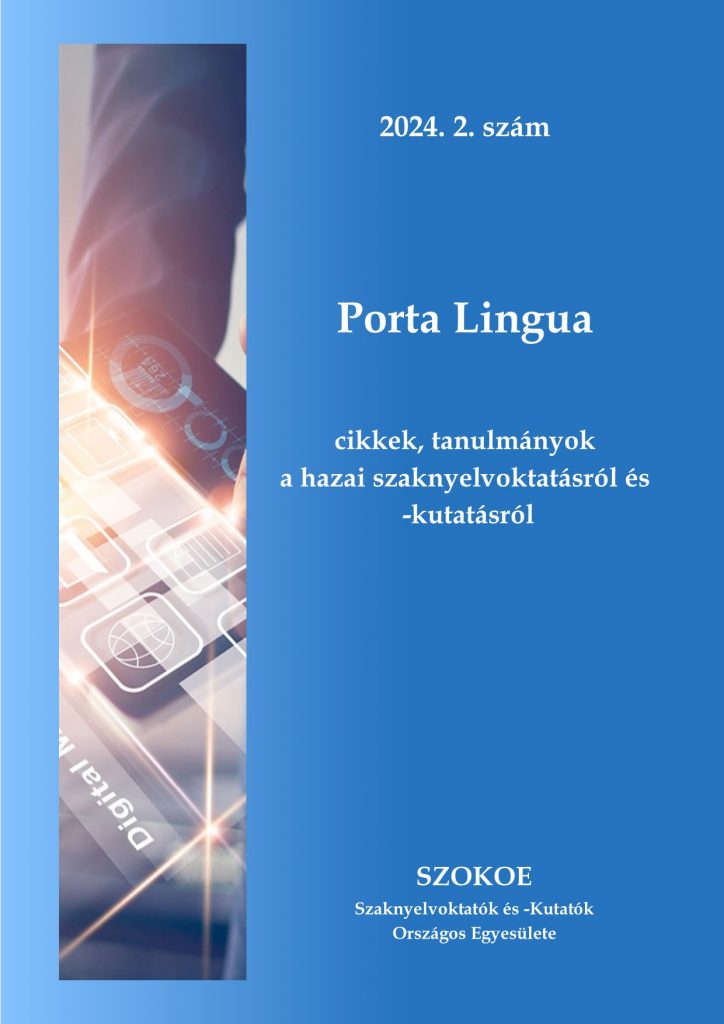Balogh Dorka
Legal translators’ perception of machine translation and its implications on the methodology of legal translator training
![]()
Balogh, D. (2024): Legal translators’ perception of machine translation and its implications on the methodology of legal translator training. Porta Lingua. 2024/2. 5-13
DOI: https://doi.org/10.48040/PL.2024.2.1
Absztrakt
The paper introduces the results of a questionnaire in which qualified legal translators with a law degree reflect on their practical experiences and impressions regarding machine translation. The 37 respondents of the survey – all of them law graduates – obtained their legal translator qualifications at a post-graduate specialist training course that has been running at the Faculty of Law of the Pázmány Péter Catholic University, Budapest since 2004. The questionnaire was designed with the aim of surveying the impact of the rapid development of machine translation quality on the rationale and viability of legal translator training, and to detect the changes needed to be implemented in the structure of the training in the opinion of practising legal translators. The data received partly confirmed the preliminary assumption that although there is still unwavering demand for such a training, significant changes in its structure and curriculum would be indispensable. The responses provide insight into legal translators’ views on the nature of their work in the changed translation environment (including, e.g., employment opportunities or their own attitude towards the translation work). The results of the survey may
provide methodological clues not only for legal translation trainers but also for translator trainers of other special
fields.
Keywords: legal translator training, machine translation, translator engines, CAT tools, translation methodology


 Porta Lingua 2024. 2. szám
Porta Lingua 2024. 2. szám